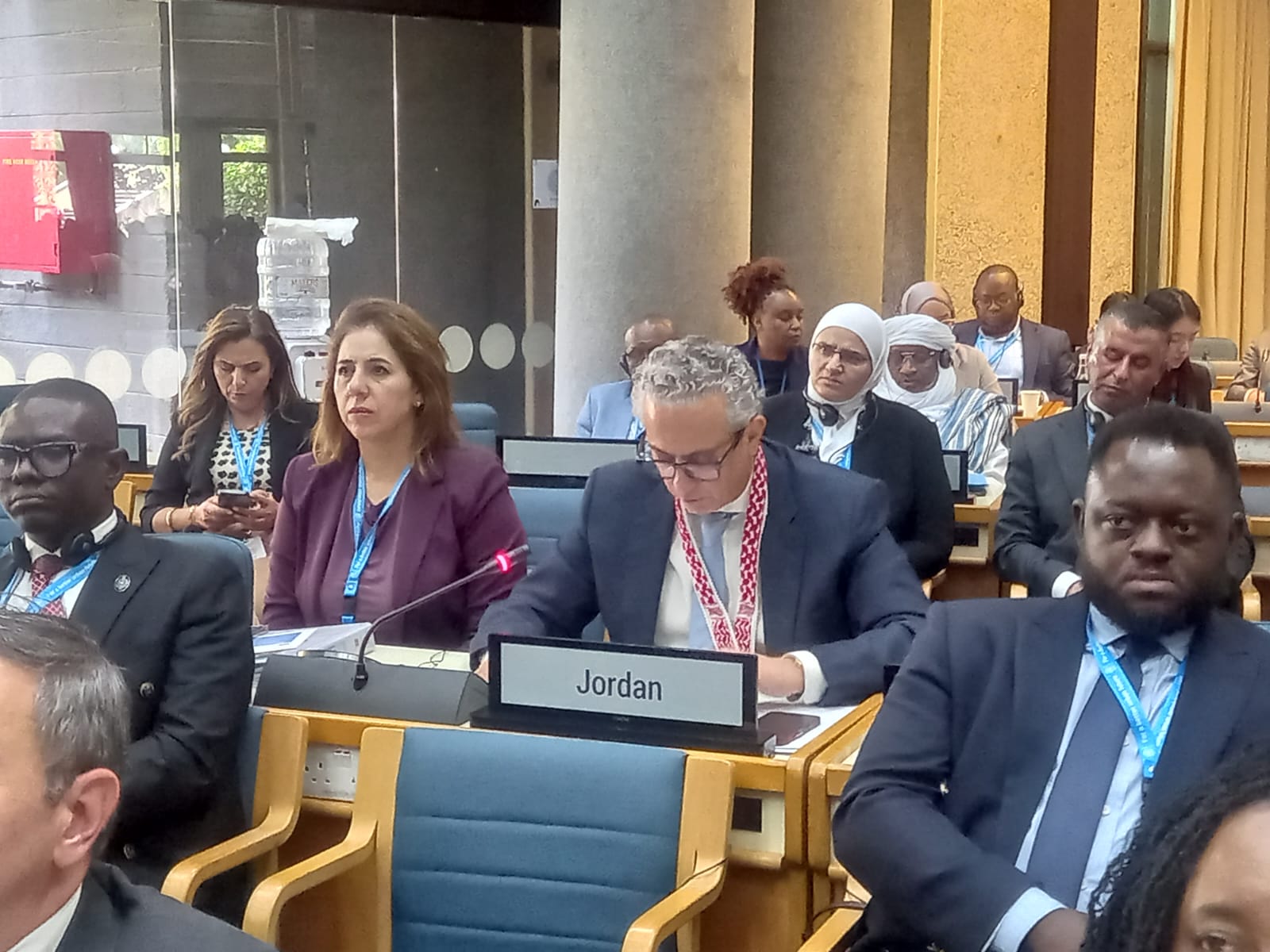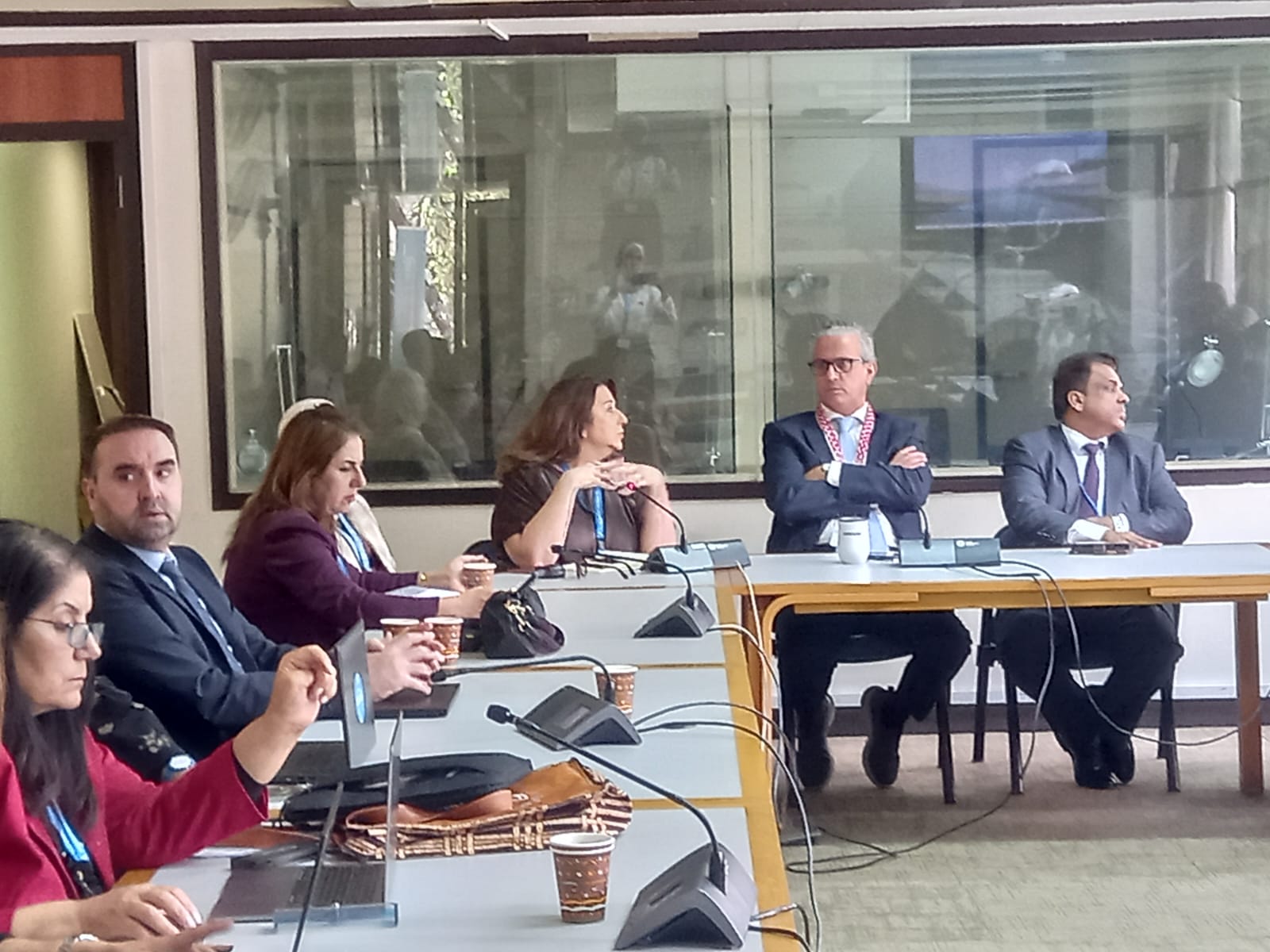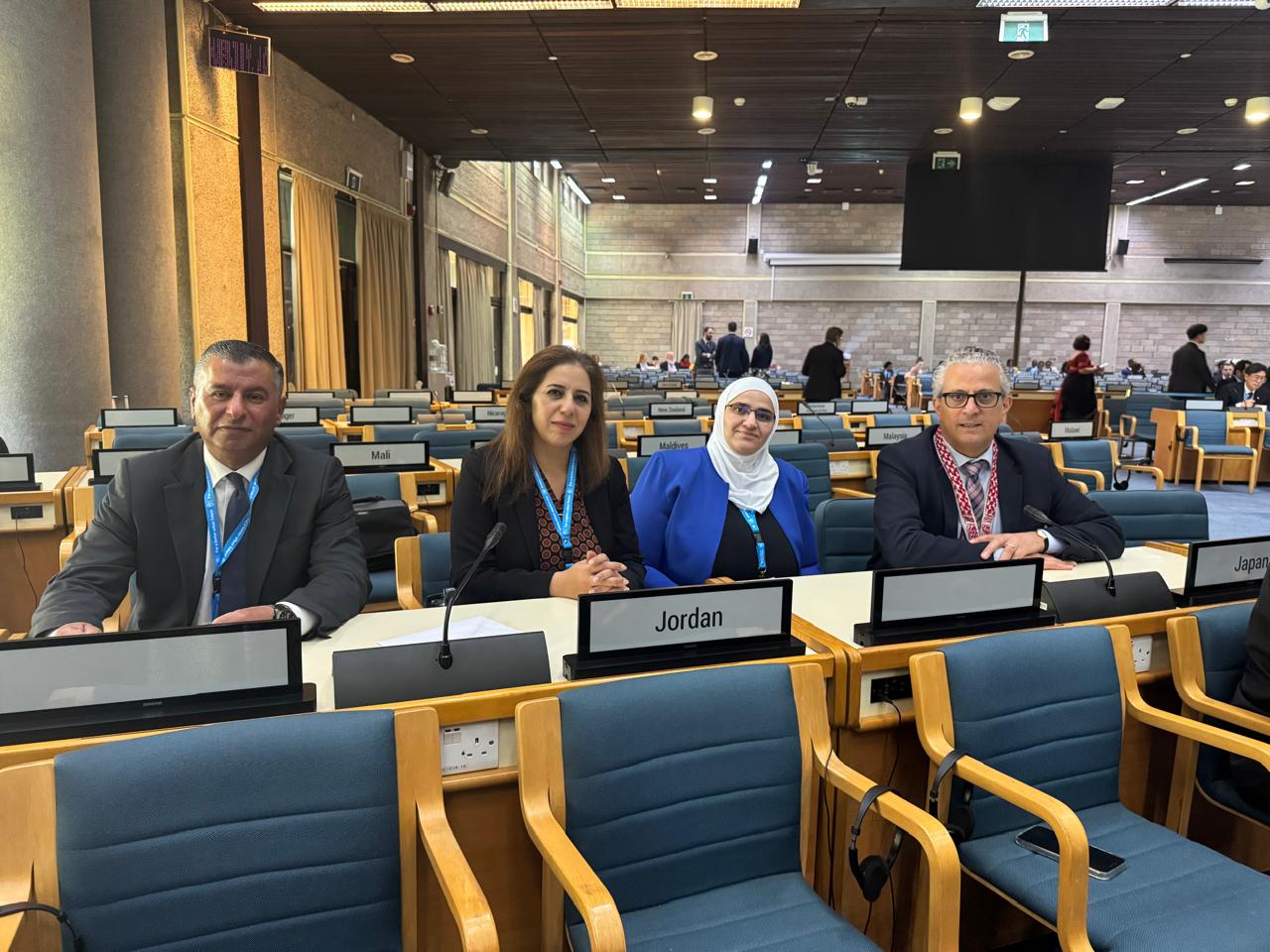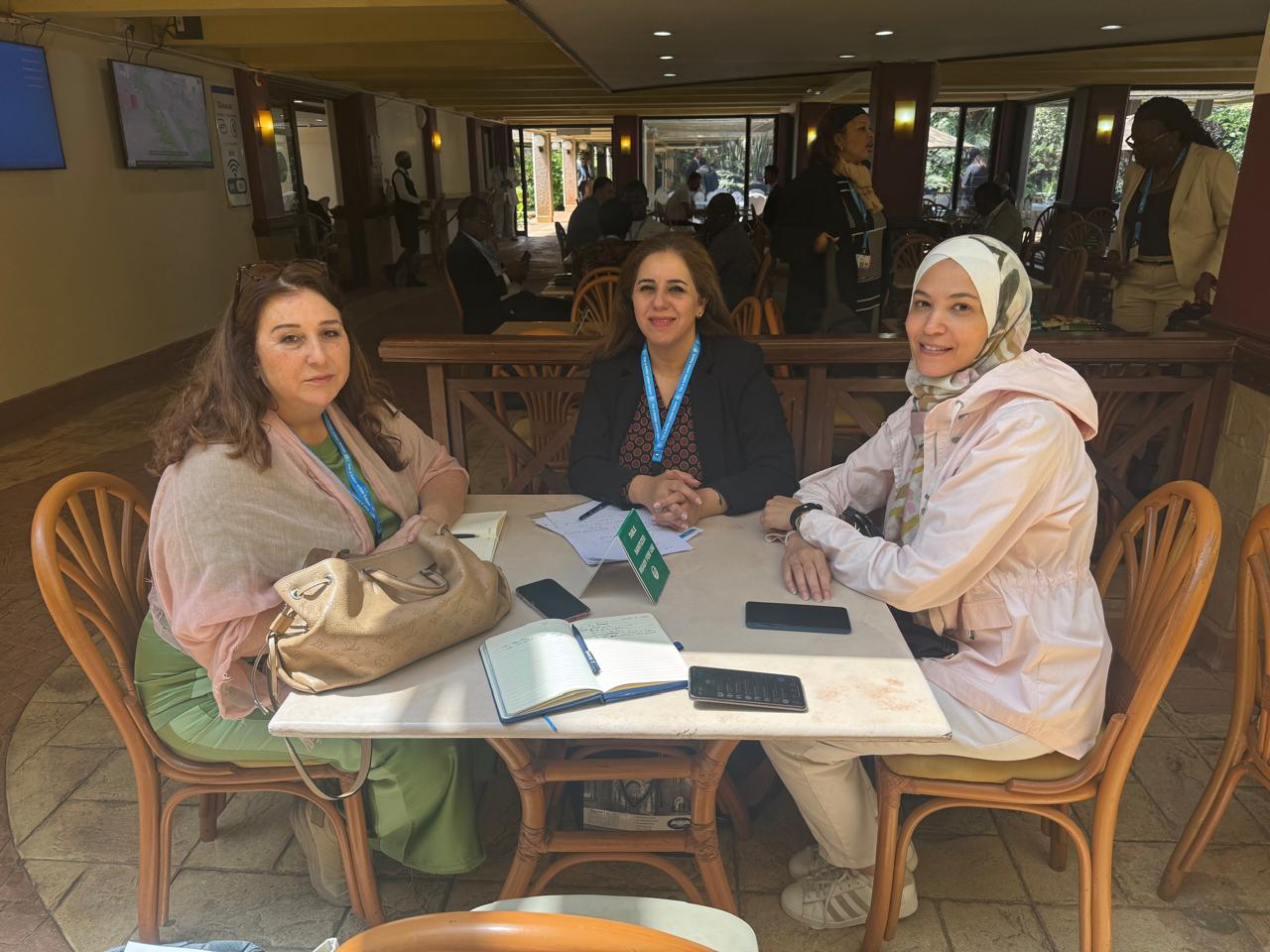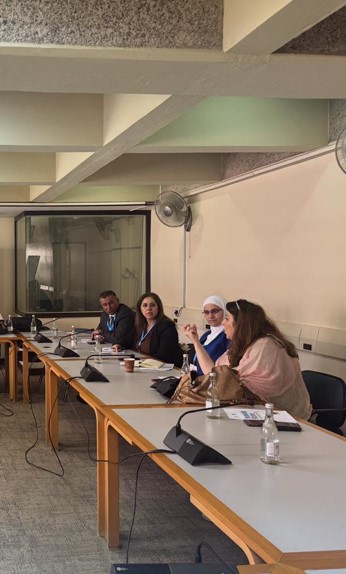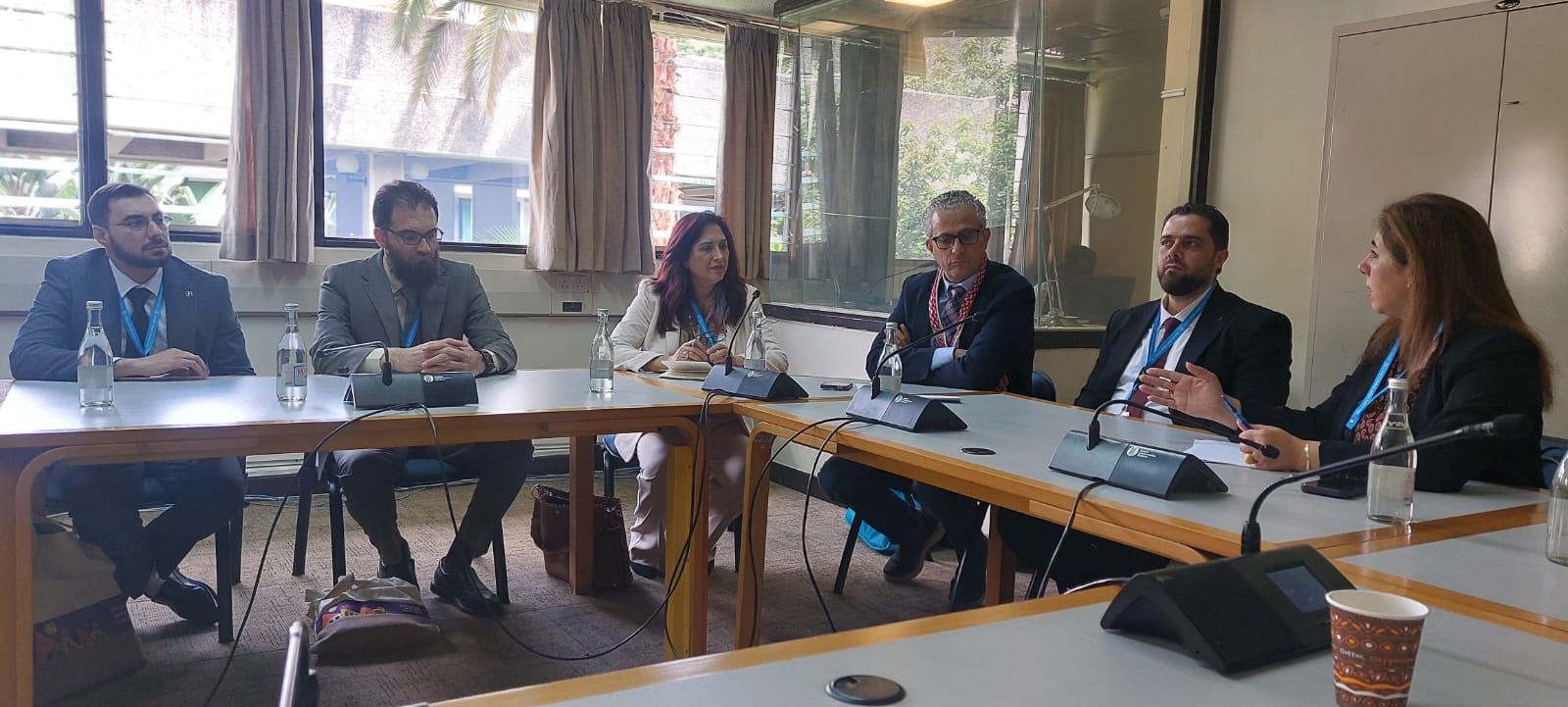Jordan took part in the resumed second session of the United Nations Habitat Assembly, affiliated with the United Nations Human Settlements Programme (UN-Habitat), which was held from May 29–30, 2025, in Nairobi, Kenya.
The resumed session addressed several key themes over two days, aiming to align the UN-Habitat planning cycle with the comprehensive review held every four years for the policy of operational activities for the development of the UN system. It also focused on reviewing and adopting the strategic plan of UN-Habitat for the period 2026–2029.
Representing Jordan at the session were Firas Khoury, Ambassador of the Hashemite Kingdom of Jordan to the Republic of Kenya and Permanent Representative to international organizations in Nairobi, and Eng. Jomana Attyat, Director General of the Housing and Urban Development Corporation.
During the high-level dialogue on adequate housing for all, appreciation was expressed for the UN-Habitat Programme’s effective organization of this important discussion. It was noted that Jordan is one of the countries that supported the draft resolution on adequate housing for all, due to its significant impact on people’s lives. The Jordanian government has shown great interest in ensuring housing for its citizens since the establishment of the Housing Corporation in 1965, followed by the Urban Development Department in 1980. These were later merged in 1992 to form the Housing and Urban Development Corporation, in line with the recommendations of the National Housing Strategy. Jordan also prepared its first national urban report and is currently finalizing its second report to track the Urban Agenda in collaboration with UN-Habitat. The importance of continued cooperation with the programme was emphasized. Jordan is also making deliberate and steady progress in line with the Economic Modernization Vision launched by His Majesty King Abdullah II Ibn Al Hussein, which serves as a national roadmap aimed at improving citizens' livelihoods and quality of life, achieving best practices and offered services, and promoting urban development principles, and the country's government's striving to affordable and adequate housing for all social groups.
Eng. Jomana Attyat, during technical meetings of the Arab group and side sessions, highlighted the importance of focusing on the best regional practices to develop national housing strategies and frameworks. These aim to create a supportive environment that enhances housing strategies across regions and empowers local efforts to adopt best practices. She stressed the importance of coordinated, inclusive housing policies and the pursuit of implementing outputs of the executive programme of the Economic Modernization Vision. The Corporation is currently working on several related initiatives, including studies for low-cost housing models, establishing criteria and standards for future cities, and drafting a law to regulate the housing and real estate development sectors. These efforts align with the outcomes of the Arab Strategy for Housing and Sustainable Urban Development.
She noted that this strategy represents an important step toward strengthening regional cooperation in the Arab region and achieving sustainable urban development by linking it with urban planning and enhancing community participation in development. In this context, the Corporation has initiated the update of the National Housing Strategy in cooperation with the United Nations Programme. She added that achieving adequate housing is now a global challenge facing many Arab countries, despite the development of urban policies in most of them. With rising global and regional challenges, increasing numbers of refugees and displaced persons, mounting economic pressures, and growing housing demands, the need for updated, data-driven, and inclusive housing policies has become critical to strengthen the right to adequate housing and support sustainable urban development.
She emphasized that this is a real opportunity to affirm collective responsibility in ensuring access to adequate and affordable housing for all, achieving a better urban future, and boosting the housing sector through modern urban planning standards and improved quality of life.
Within the Arab working group organized by the Regional Director of the Programme, Ms. Rania Hedeya, which included several countries including Jordan, Attyat participated in several meetings and made contributions highlighting the importance and role of best practices focused on adequate housing for all.
On the sidelines of the session, the Jordanian delegation held a meeting with the Syrian side, represented by the Minister of Public Works and Housing and the Director General of Syrian Housing. They discussed opportunities for cooperation and future plans between the two brotherly countries in the housing sector. The Syrian side expressed interest in benefiting from Jordan’s experiences and expertise in the housing field.
Additionally, the Director General of the Housing and Urban Development Corporation held a meeting with the UN-Habitat SDG Localization Group, in the presence of the Regional Director of UN-Habitat Rania Hedeya, Director of Development Initiatives Hatem Al-Habahbeh, UN Organizations Liaison Coordinator Lara Al-Abdallat from the Ministry of Planning and International Cooperation, and the Director of UN-Habitat in Jordan, Dima Abu Diab. The meeting featured interventions, discussions, and reviews of several national and local reports, and explored ways to enhance cooperation between Jordan and the UN-Habitat Programme, particularly in housing and sustainable development. They reviewed governmental efforts and policies in providing affordable housing for citizens and discussed the challenges facing the housing sector and ways to support and expand joint efforts.
